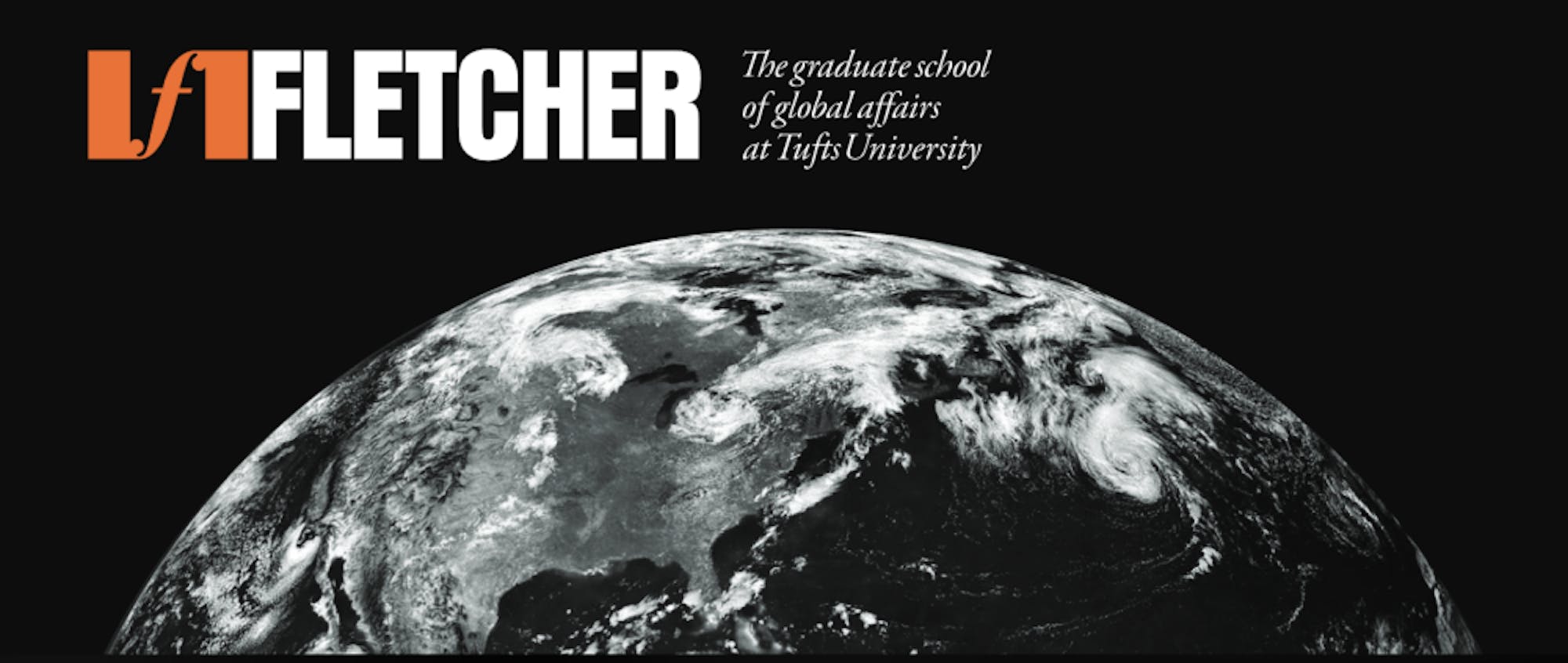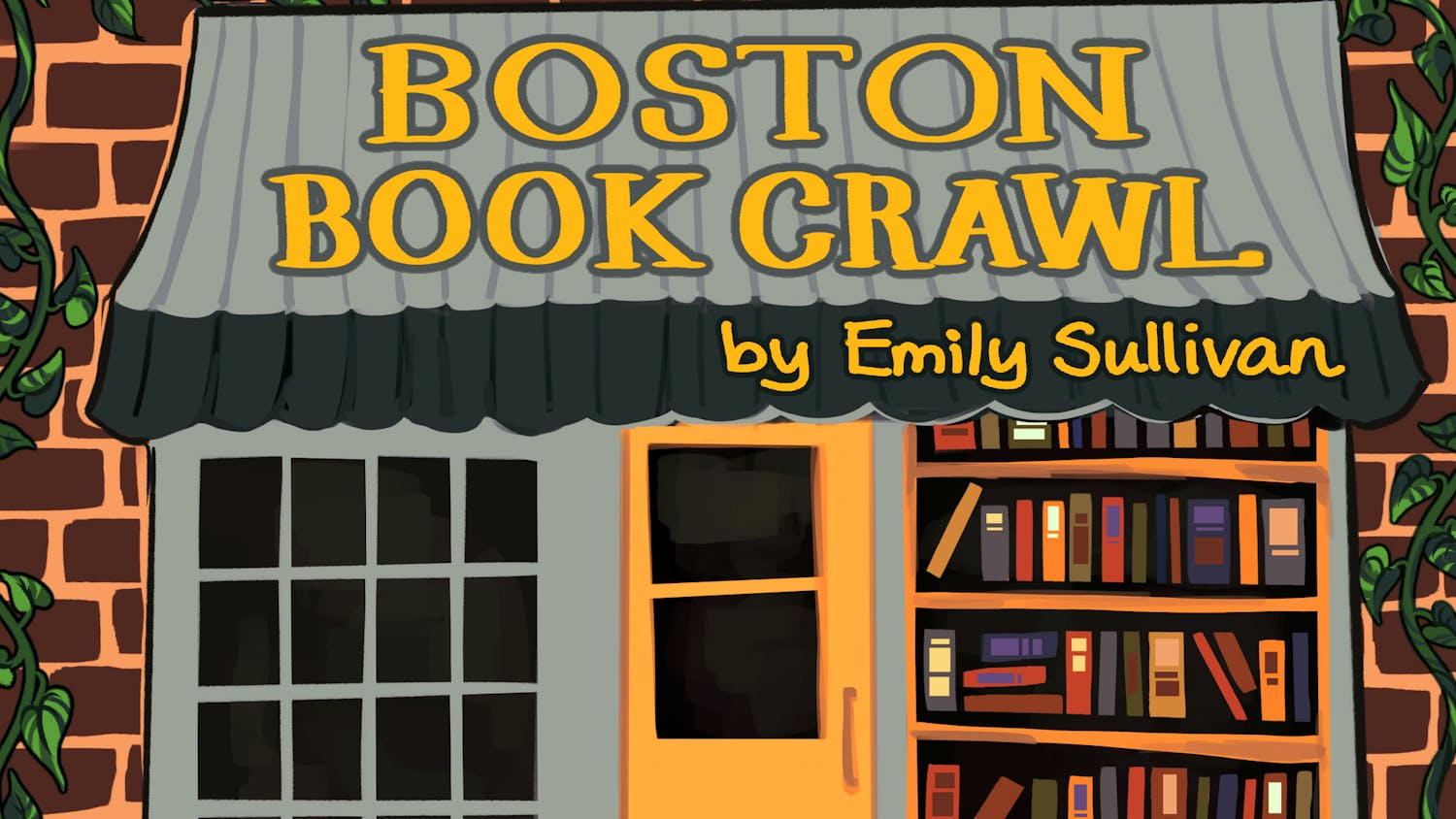Founded in 1975, The Fletcher Forum of World Affairs has published cutting-edge scholarship on contemporary issues in foreign diplomacy for almost 50 years. Past contributors and interviewees are a distinguished bunch: prime ministers, ambassadors and former Secretary of State Madeleine Albright can be counted among their ranks. Esteemed by the Fletcher community but somewhat unknown among undergraduates, the Forum could be considered the university’s hidden gem.
Last Friday, The Fletcher Forum of World Affairs released its winter 2023 print edition, which was entitled “Climate’s Decisive Decade: Achieving an Equitable Green Transformation.” The edition includes articles and interviews with diplomats, academics, authors and specialists who deal with topics such as sustainability and energy policy. It is characteristic of the work the Forum has been doing for the last half-century: fascinating scholarship and experience-based accounts of salient issues affecting global politics right now.
In and of itself, the Forum is an impressive entity. Its pages are filled with the words and works of key problem solvers across the globe. This prestige is all the more astounding when considering who sits at its helm: The entire publication, from top to bottom, is run by students within the Graduate School of Global Affairs at Tufts University.
Lily Hartzell, a second-year student in the Masters of Arts in Law and Diplomacy program and the Forum’s current editor in chief, commented that working on the journal has been an incredible opportunity for her and her Fletcher peers.
“Often as students, we are in a position of asking people for things,” she said. “With the Forum, it’s really exciting, because we get to offer people an opportunity.”
The Forum thus disrupts a more traditional, hierarchical sense of academia for something more egalitarian and less exclusionary. Here, students get to choose which professionals, practitioners and scholars to spotlight. The students are curators of thought and thus make their mark on the conversation.
This arrangement places the Forum’s team in an unusual position: It’s not at every student publication that a writer can expect former prime ministers to reply to their emails with eagerness.
“You can email almost anybody, and you’ll often get a response,” Hartzell said. “Even … high-level individuals know what the forum is and are interested in engaging.”
The students who work at the forum have a clear sense of this privilege afforded them. More urgently, though, they feel a sense of responsibility — not only to take advantage of that position but to serve as an example of how academia should look in the future. As a result, the Forum’s student leadership over the past few years has put a great emphasis on diversity.
Anna Braverman, another second-year student in the MALD program and the Forum’s managing print editor, asserted that the solicitation process plays a big role in achieving a diversity of scholarship. She explained that each member of the Forum’s print team has the responsibility to send out eight to 10 solicitations per semester, and through their curatorial work, they attempt to cast the widest net possible.
In light of all the potential contacts the Forum employees might have, part of the excitement of the solicitation process is its unpredictability: Students don’t know exactly how people from the wide-reaches of their networks will respond to the prompt beforehand.
“I think what’s great is that we set a very broad theme … and if you look at the description, you can go in a million ways,” Braverman said.
She described this process as “being very intentional about bringing in voices who wouldn’t necessarily have the opportunity to exist in this space otherwise.”
One concrete example of this is a case of geographic diversity. Hartzell cited the leader of The African Climate Foundation as one of the contributors whose work she’s most excited to see in print. In her opinion, the article is refreshing because it serves as a counterweight to the relative wealth of exposure western climate organizations have received for their work in the field.
Even more noteworthy, however, are the efforts to diversify the Forum’s format, furthering the accessibility of scholarship about pressing world affairs. Originally a biannual print journal with summer and winter editions, the Forum has now expanded to include a website, student blog (the Rostrum) and podcast. The new formats allow for a greater voice on current events within the student body. Not only do Fletcher students have the opportunity to publish their own articles, but they can also directly engage with academics and practitioners by interviewing them on the Forum’s podcast.
Even within the traditional print edition, the way the Forum presents ideas has also changed. Now, long-form feature articles share space with perspective articles. Pioneered by former editor in chief Delia Burns,who served the journal for the 2021–22 academic year, perspective pieces set shorter-form contradictory opinions from different contributors in conversation with each other. Hartzell also emphasized that having multiple viewpoints is integral to their push for diversity.
The positive experiences cited by Hartzell and Braverman were also mirrored by one recent contributor. Professor Mihaela Papa, a Fletcher faculty member who specializes in sustainable development and global governance, evaluated the publication process very positively, citing the high level of professionalism and commitment of the students involved.
Professor Papa also highlighted the Forum’s uniqueness.
“In the field of international diplomacy, there is a limited number of quality journals that are policymaker-friendly and advance policy debates on current issues, so there is a clear niche for the Forum's contributions,” Papa wrote in an email to the Daily.
As the Forum approaches its 50th anniversary, it has gained a new status: Not only is it a contemporary resource, but it has also become a historical archive. In talking about the history of the publication, Hartzell pointed out that all of its past print editions are still available online.
“It’s really interesting to go back to the archives and look at what the issues of the day were, and how they were being framed,” she said.
In surveying this rich history of scholarship, the editorial team’s overriding feeling is one of gratitude and pride.
“I’m really proud to be a part of an organization that’s been around this long,” Hartzell said.
All things considered, it seems the Forum will continue to be a crucial resource for the field of foreign diplomacy for decades to come.






